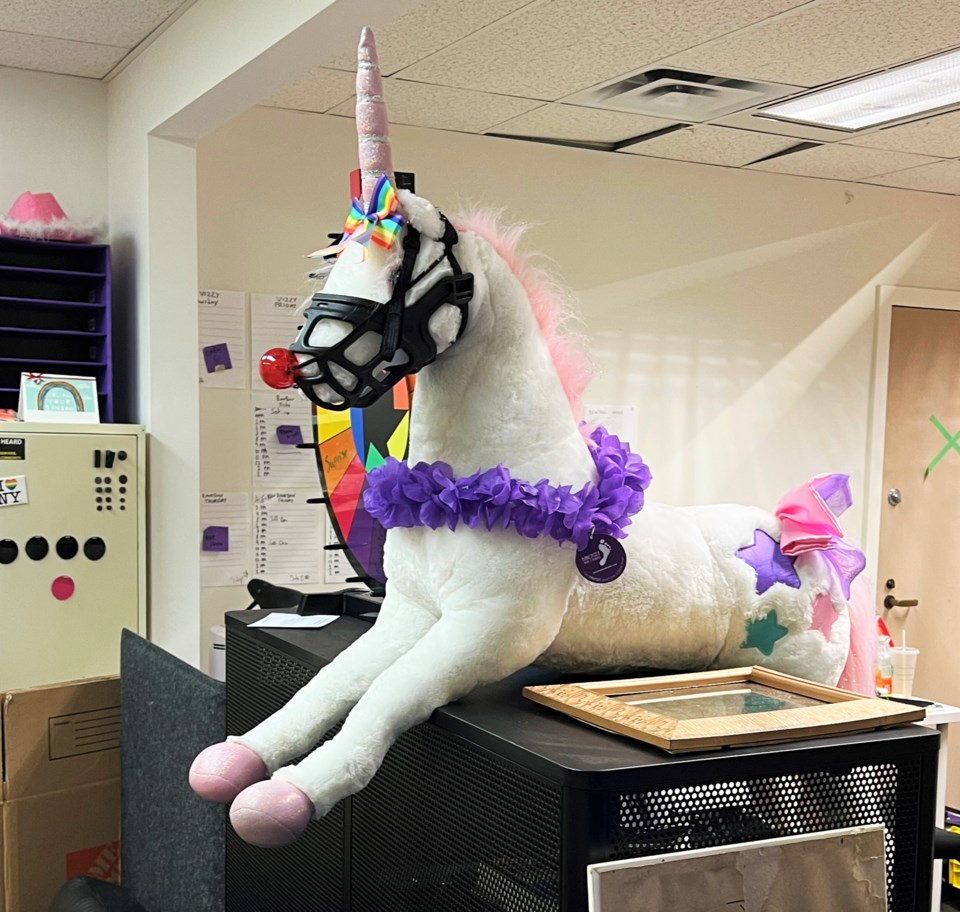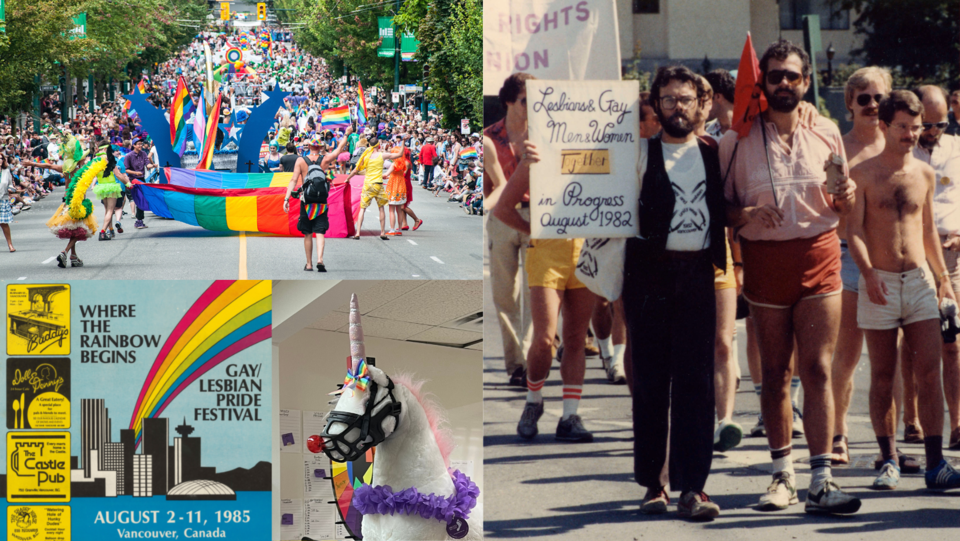It's the August long weekend, and in Vancouver, that's come to mean it's Pride week.
Vancouver's LGBTQ+ community has been holding parades for more than four decades, and they've become one of the largest annual Pride parades in Canada, if not the world.
To that end, we're looking at Vancouver's LGBTQ+ community, Pride parades and some things you might not know.
A disclaimer: there's a long and interesting LGBTQ+ history in Vancouver that is just a bit (actually) too much to cover here.
1. In early parades people wore paper bags over their heads to hide their identity
The first Pride parades occurred when Canadian society was openly homophobic.
To that end, early organizers told uncertain participants they could wear paper bags to keep their identity hidden while still supporting the community.
Long-time activist David Myers told CBC that in Vancouver some people took them up on the offer, but many didn't.
Lee Keple, Interim Executive Director at the Vancouver Pride Society, notes that this wasn't solely a Vancouver issue; when they went to the first Pride Parade in Edmonton in the 90s many wore bags, out of fear of being outed and fired.
2. Canada's first 'gay rights' group formed in Vancouver
The Association for Social Knowledge (ASK) was formed in Vancouver in 1964; it was the first group in Canada to form to fight for rights at a time when the legal system had homophobia enshrined in law (same-sex sexual activity was decriminalized in Canada in 1969).
The group was inspired by what was going on in the Netherlands and U.S. and brought the association to Canada, organizing everything from public discussions to parties.
They also launched the second such group in Canada for the queer community. Given the legal system and society's homophobia, the list of subscribers was kept in a safety deposit box.
3. The parade was financially supported by a bar manager during several lean years
Each year there's a Terry Wallace Memorial Pancake Breakfast, and there's a good reason Wallace is celebrated.
In the 80s and the 90s he was the manager of the Castle Pub, a prominent hangout for the community, with parties and drag shows and more, says Keple. At the same time, the Pride parade was struggling financially.
To keep the annual celebration with floats afloat, Wallace supported it, making sure it continued on. He used 50/50s and money collected through pull tab machines to keep it all going. Now the pancake breakfast bearing his name is a fundraiser itself.
Glenn Tkach of the Really Gay History Walking Tour notes the Castle itself has an important place in the city's and LGBTQ+ community's history.
"The bar at The Castle was a popular hangout for queer folks for many decades, and especially popular for drag queens. They would refer to themselves as 'the queens of the Castle,'" he says.
Unfortunately, The Castle closed decades ago and the building was demolished.
4. The city is mandated to hold the parade
In 2013, the City of Vancouver voted to make the annual Pride parade a civic event, a special designation for the event.
This means a few things, including savings on certain aspects, more public eyes on the event's organization, and, oddly, the city has to hold a Pride parade if the Vancouver Pride Society won't for some reason (though Keple says that'll ever be the case).
"It's an honour to be named a civic event, but it means we're under more scrutiny," they say.
They explain that the city has deemed the event culturally important to the fabric of the city.
"Theoretically, if we decided not to do Vancouver Pride anymore, the burden would fall back to the City," Keple says, musing on the idea of a Pride parade organized by bureaucrats.
5. There's a Vancouver Pride Society office mascot, Qink! the unicorn
If you visit the Vancouver Pride office these days, there's a giant stuffed unicorn there to greet you. Seriously, it's gigantic.
Qink! just got their name this year, but has been around for a bit, used at Pride society events. Depending on the staff's mood they get dressed up.








